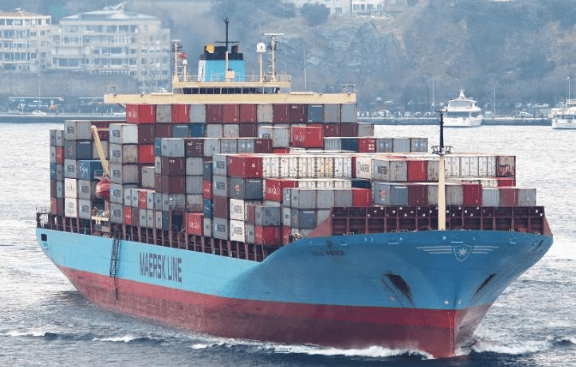In the wake of the Suez Canal blockage Maersk is suspending spot bookings and short-term contract shipments from a wide variety of export markets.
While the blockage of the Suez Canal by the 20,000 TEU containership Ever Given was cleared after six days Maersk expects to see impact across the global supply chain with significantly reduced capacity, as well as equipment shortages, which have dogged the sector since the second half of last year.
“We have earlier communicated that even when reopened, the blockage of the Suez Canal would have ripple effects on global supply chains for weeks to come,” Mearsk said in a customer advisory.
“However, expecting a significant loss in capacity over multiple weeks, depending on market dynamics, we have decided to temporarily cease short term bookings placed via Spot, as well as short term contracts this week and in the immediate future, in these geographical services.” Spot is Maersk’s online booking platform for spot container shipments.
The suspension of spot and short-term contracts affects all exports out of Asia which Maersk said was due to expected equipment shortages.
It also covers exports out of West Central Asia to Europe and North Africa, North America East Coast, West Africa via Mediterranean, and Latin America via Mediterranean.
The suspension impacts exports out of Europe to Asia, Middle East and Indian Sub-Continent, and Oceania.
It covers North American exports to Middle East and Indian Sub-Continent, and East Africa, and exports from Latin America from East Coast South America to Middle East and Indian Sub-Continent and Asia via Mediterranean, and from Central America and West Coast South America to Middle East and Indian Sub-Continent.
The suspension also impacts exports from East Africa to Europe, and West Africa to Asia, Middle East and Indian Sub-Continent via Mediterranean.
“We want to assure you that this is only temporary so that we may quickly move existing laden cargo and empty containers to the areas they are most needed,” Maersk stated.
The closure of Suez Canal and build up of traffic waiting to transit the key waterway came at a time when the container shipping was already severely stretched by a surge in demand in the second half of 2020 that has continued into this year. This has resulted in severe port congestion on the US West Coast, and at other major ports, and compounded an already existing shortage of containers in key export markets.
